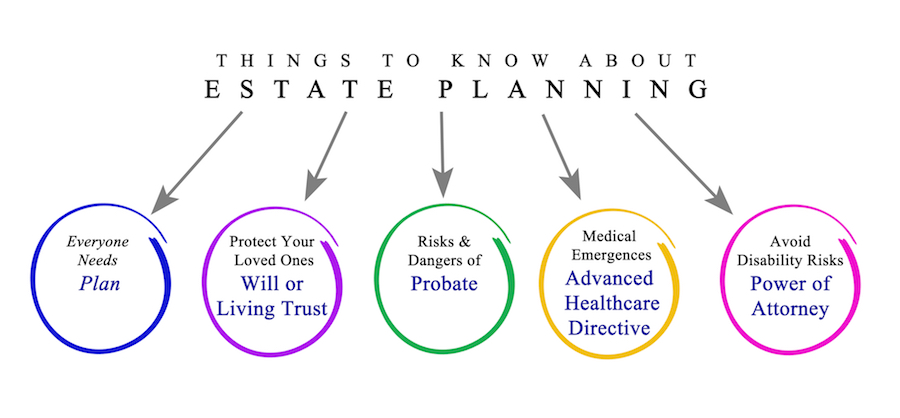A Beginner’s Guide to Living Trusts: Securing Your Legacy
When it comes to planning for the future, you want to ensure that your assets are protected, your healthcare decisions are clear, and your loved ones are taken care of. A Living Trust is a powerful tool that can help you achieve these goals. In this beginner’s guide, we’ll walk you through the essentials of Living Trusts, Financial Power of Attorney, and Advance Medical Directives, giving you the knowledge and confidence to make informed decisions about your estate planning.
What Is a Living Trust?
Understanding the Basics
A Living Trust is a legal arrangement that allows you to place your assets into a trust during your lifetime. You retain control of your assets as the trustee, but you also name a successor trustee to manage them if you become unable to do so. This trust continues to exist after your passing, ensuring a seamless transition of your assets to your chosen beneficiaries without the need for probate court.
The Key Players
Roles and Responsibilities
In a Living Trust, there are three main roles:
- Grantor: This is you, the person who creates the trust and transfers their assets into it.
- Trustee: Initially, you act as the trustee, maintaining control over your assets. If you become incapacitated or pass away, your successor trustee steps in to manage the trust.
- Beneficiaries: These are the individuals or organizations that will receive your assets as specified in the trust document.
Financial Power of Attorney
Managing Your Finances
In addition to a Living Trust, it’s essential to consider a Financial Power of Attorney. This legal document designates someone to make financial decisions on your behalf if you become unable to manage your finances. It ensures that your bills are paid, investments are monitored, and financial affairs are in capable hands.
Advance Medical Directives
Ensuring Your Healthcare Wishes
Advance Medical Directives are crucial for specifying your healthcare preferences. They consist of two parts:
- Healthcare Proxy: This designates someone to make medical decisions for you when you’re unable to do so.
- Living Will: This outlines your preferences for medical treatment, including life-sustaining measures, in specific situations.
Benefits of a Living Trust
Why Choose a Living Trust?
There are several advantages to establishing a Living Trust:
- Avoiding Probate: Assets held in a Living Trust bypass the probate process, saving time and reducing expenses for your heirs.
- Privacy: Unlike wills, Living Trusts are private documents, keeping your financial affairs out of the public record.
- Flexibility: You can modify or revoke a Living Trust at any time while you’re mentally competent, giving you control over your plan.
- Incapacity Planning: A Living Trust addresses not only what happens after your passing but also during your lifetime if you become incapacitated.
Setting Up Your Living Trust
Taking the First Steps
Now that you understand the basics, it’s time to set up your Living Trust. Here’s how to get started:
- Consultation: Seek a qualified estate person who can guide you through the process and draft the necessary documents.
- Inventory Your Assets: Make a list of all your assets, including real estate, bank accounts, investments, and personal property.
- Choose Beneficiaries: Decide who will inherit your assets and in what proportions.
- Appoint a Trustee: Select a successor trustee who will manage the trust when you cannot.
- Execute the Documents: Sign the Living Trust document, Financial Power of Attorney, and Advance Medical Directives in the presence of witnesses and a notary public.
- Fund the Trust: Transfer your assets into the trust’s name, ensuring that titles and ownership are properly updated.
By following these steps and working closely with Estate Planning professionals you can establish a Living Trust that reflects your wishes and provides for your financial and healthcare needs.
In conclusion, a Living Trust, coupled with Financial Power of Attorney and Advance Medical Directives, offers a comprehensive solution for safeguarding your assets and ensuring your healthcare preferences are respected. It’s a proactive approach to estate planning that provides peace of mind for you and your loved ones.
Now that you have the knowledge to get started, take the next step in securing your legacy through careful estate planning with a Living Trust.
Please take advantage of a free informational Zoom call or a 1 on 1 private consultation (via Zoom call) that I have arranged with our preferred Estate Planning professionals. Click here to learn more and register. Use referral code Kevin Byrd Stockton Mobile Notary.
(I may receive a commission for any purchase you make with Premier Estate Planning).

